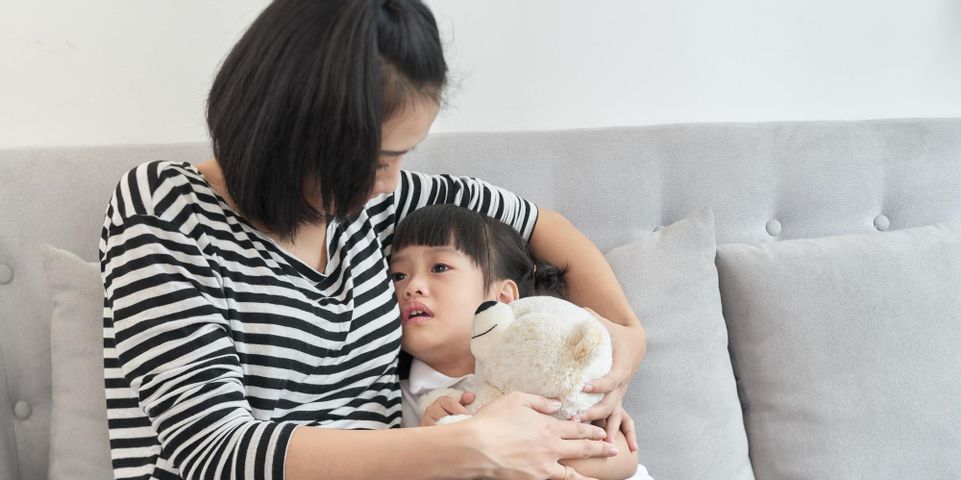
A fever occurs when your hypothalamus— the part of the brain that regulates body temperature— raises your temperature beyond the normal range. It does this to make the body inhospitable to germs that cause illness. If your child gets a fever, you may be tempted to rush them to the pediatrician. Though this common symptom may pass quickly with no underlying cause, it often results from such conditions as ear infections, tonsillitis, and chickenpox. Here’s a closer look at what to do about fever in your little one.
How Do You Know if Your Child Has a Fever?
If your child is feverish, they'll likely feel warmer than usual. You might notice this by touching their forehead, but confirm it using a thermometer.
In babies and children, normal body temperature can range from 97.9 to 99 degrees Fahrenheit. A temperature of 100.4 degrees F or higher is considered feverish for most kids. If your child has a cold or viral infection, their temperature might register between 102 and 104 degrees F. Other symptoms of fever include sweating, shivering, body aches, appetite loss, and irritability.
How Can You Help Your Child Feel Better?
Over-the-counter medications, such as acetaminophen and ibuprofen, are effective in bringing down a fever. Follow the recommended dosage for your child's age and weight. For children 2 years or younger, consult a pediatrician about a safe dosage.
Ensure your child is drinking plenty of fluids. Because fever raises the body temperature, it causes increased sweating, which can lead to dehydration. Plus, with irritability and loss of appetite, children are less likely to drink a healthy amount. In addition to water, ice pops, soups, and gelatin are all hydrating.
 Dress your child in lightweight fabrics and cover them in a lightweight blanket or sheet. Body heat needs to escape for their temperature to go down.
Dress your child in lightweight fabrics and cover them in a lightweight blanket or sheet. Body heat needs to escape for their temperature to go down.
When Should You See a Doctor?
In most cases, a child's fever will subside with rest and care. However, it's best to call the pediatrician when your child is under 3 months old with a temperature of 100.4 degrees F or higher. Medical advice should also be sought for kids 6 to 24 months with a temperature over 102 degrees F for more than a day.
Finally, call the doctor if your older child has a fever above 102.2 degrees F, especially when coupled with other persistent symptoms, such as diarrhea, vomiting, and dehydration.
For reliable and compassionate pediatric care, turn to Mante Pediatrics in Chester or Rock Hill, SC. Dr. Ebenezer Mante is experienced in providing a wide range of medical services, such as skin and allergy treatment, wellness visits, immunizations, and ADHD evaluations. Find calming care for your child by calling (803) 385-2075. Learn more about their pediatrician services online.
About the Business
Have a question? Ask the experts!
Send your question

